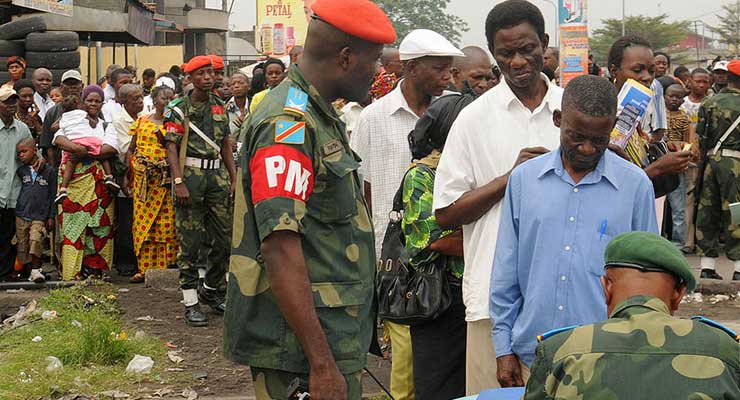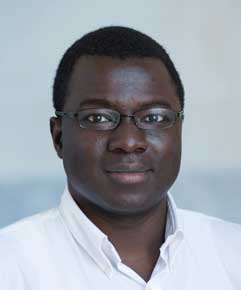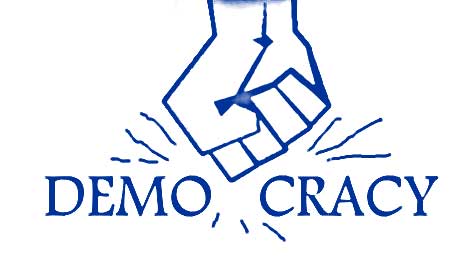
In a democratic country, power is derived from an election, “and consequently it is the basis of legitimacy”. There is no doubt that Africa has made significant strides in holding regular democratic multi-party elections as opposed to the violent overthrow of governments that had been the case for example Democratic Republic of Congo (DRC) Nigeria, Ghana, Uganda and The Gambia, among others before the turn of the millennium.
In Africa, the holding of regular elections has in most cases failed to translate to democracy and peacebuilding. For instance since 2000 Zimbabweans have experienced five national elections and two constitutional referendums. The disputed parliamentary election of 2000, the harsh and intimidating 2002 presidential election, the turbulent 2005 parliamentary election to the ferocious 2008 harmonized elections where for example over 200 people mostly opposition members are said to have died, with numerous arrests and thousands more forced to flee as internally displaced or refugees. These have lead to election-related conflict and violence rising to the forefront of political discourse in Zimbabwe and globally.
Today, elections are becoming more and more competitive for political parties forcing a rise in tendencies for most political parties and candidates to contest elections for the ultimate goal of “winning”. If they lose, they still usually resort to use of violence means to grab or hold on to political power (Rudebeck 2007). According to Arsène Brice Bado, a Southern Voices Network Scholar at the Wilson Center, the rise in post-election violent struggles in a number of African countries has given rise to vibrant debate around the correlation between elections and peace.
This phenomenon is not unique to Zimbabwe alone.
The difficult electoral process in Ivory Coast in 2010 are said to have killed 1, 500 people. With thousands more having been internally displaced or fled as refugees to neighboring countries.

History will tell us that electoral-related conflicts were witnesses in the Democratic Republic of Congo-DRC in 2006, 2011 and more recently in 2016 after government decided unsuccessfully to unitarily postpone general elections to 2019. According to the Guardian Newspaper article (27 December 2016) titled “We’ve had enough’: Kinshasa holds its breath amid talks to end violence”, demonstrations that ensued left a trail of bloodshed where more than 40 people said to have lost lives in the capital Kinshasa. In Lesotho (1998) and (2007) intimidating electoral processes caused chaos which forced South Africa to intervene militarily at one stage.
In Kenya (1992, 1997) and most recently in 2007- 2008 more than 1,200 people may have died and up to 350,000 more internally displaced after the December 2007 general elections (Gullies 2011). Madagascar in 2007 had its own fair share of election- related violence. Guinea (2015) and Uganda (2016) are other examples that have dark memories related to election violence.
Elsewhere, Burundi hostilely approved constitutional amendment in 2015 that allowed President Pierre a third term bid and subsequent elections in 2016 sparked violent protests. According to Human rights watch dog, Freedom House, hundreds of people are said to have died and thousands were sent scurrying for cover in neighboring countries.
Perceived unfair electoral process can create ugly scenes as seen in Gabon (2016) were several people are said to have died. Case studies and literature review also shows that in Europe, Bosnia and Herzegovina are evidence of how electoral processes viewed as secessionists’ can leave a horrible trail being felt and seen up to this day. In Asia, disagreements over election results in Bangladesh (2013) and Pakistan (2014) left permanent scars for thousands of families.
All these cases suggest an electoral process that went horribly wrong where some of the stakeholders took a more muscular approach to dispute resolution which betrays the very tenets of peace and democracy
Elections in Dangerous Places
Gullies (2011) in the book “Elections in Dangerous Places: Democracy and the Paradoxes of Peacebuilding” is of the view that in practice elections are an indispensable “ element of democracy where they are a vehicle for constructive conflict designed to manage and channel diversity of opinion in productive directions”. Elections help to foster democratic principles that preserve peace within a country hence if an election is perceived to be free, fair and just by all stakeholders, it can foster peace.
In the same book, Gullies goes on to argue that elections serve three main functions in a democracy:
- First, they are a means to choose the people’s representatives to a parliament or any other representative forum, or a single officer as the presidency.
- Second, elections are held to choose a government that people want from competing political parties.
- Finally, elections are “a means of conferring legitimacy on political systems”.
Therefore, under normal circumstances, elections as noted by Staffan Lindberg in “Power and Elections in Africa” should help “civil and political liberties to become more firmly institutionalized”. This is one important aspect of constitutionalism that will translate to democracy and nation building in the sense that the electoral framing process allows inclusive participation of all stakeholders and encourage tolerance of diverging views.
Democratic Success and Durability
There is however, growing recognition that stable peace and national prosperity can only be achieved when institutions are democratic and representative of all groups in society. A peaceful and productive society is based on effective electoral system that discourages the rise of violence pre and post elections. Success and durability of any election in this case means having effective and efficient structures which provide a safe environment for a peaceful, fair and credible electoral process.
 Essentially, credible elections involves a combination of democracy, adherence to values regarding independence of electoral commissions and an independent judicial system that shape and regulate the democratic and institutional context of elections.
Essentially, credible elections involves a combination of democracy, adherence to values regarding independence of electoral commissions and an independent judicial system that shape and regulate the democratic and institutional context of elections.
In general the judiciary should be seen as the place of last resort for managing the conflicting preferences and interests of citizens to resolve their conflicting views and interests after having exhausted all other peaceful remedies provided in the institutional framework that are based on rules commonly agreed by parties to the election as contained in the Constitution and electoral laws. The final of the puzzle for a free and fair electoral process should be a well-trained and non-partisan police and military force that can provide security to the electorate.
However, preventing conflict and violence goes beyond the organization of free and fair elections. Furthermore, peaceful elections are by no means a guarantee for credible election, while perceived free and fair elections are no guarantee for election democracy either.
My optimism is high about the prospects of peaceful election in Kenya and Rwanda this August and early 2018 in Zimbabwe. Kenya and Zimbabwe once had Governments of National Unity (GNU) after bloody electoral processes in 2007 and 2008 respectively. Rwanda also went the same route after the 1994 genocide. The GNU drawn from the quarrelling parties failed dismally due to squabbles over decision making. Therefore, l would not want another GNU in any of these countries. I will certainly not forget the Gambia, set to hold parliamentary elections this April and finally Angola (August), DRC (if they take place) and Liberia (October) were general elections are set to be held later this year.
References
Bado, Fisher, A.B.2015. Peacebuilding through Elections in Africa. Africa up Close. Wilson Center.
Fuad Afgan,c KZ. 2016. Political Elections as Element of Democracy. Journal of Political Science and Public Affairs (4:220).
Rudebeck, L.2007. Building Civic Trust in Post- Conflict Societies. In:Norberg and Obi (eds). Reconciling Winners and Losers, Post-Conflict Elections in West Africa: political and policy imperatives, Nomadic African Institute.
Leave a Reply